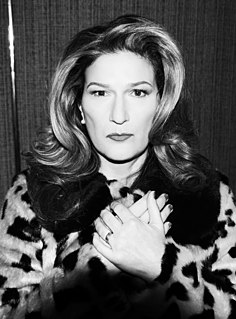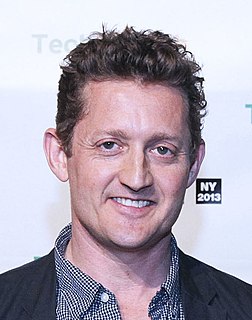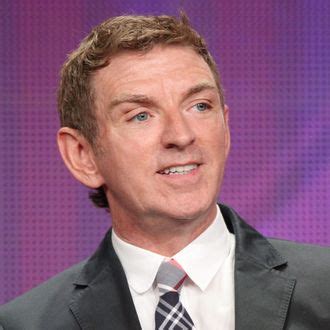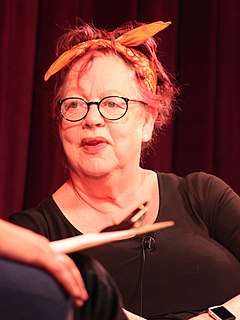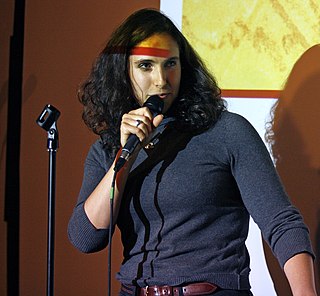A Quote by Ana Gasteyer
Writers tend to hate recurring characters; there's this writer snob thing about it. But I don't have that. I feel like the challenge is always to find a cool and innovative way to do it and, obviously, to not repeat your jokes.
Related Quotes
It feels as though a very disproportionate number of main characters are writers, because that's what the writer knows. Fair enough. But nothing bothers me more in a movie than an actor playing a writer, and you just know he's not a writer. Writers recognize other writers. Ethan Hawke is too hot to be a writer.
Many writers hate the shilling process, and I understand that. However, it's really the only thing about the publication process you can somewhat control. You can't affect reviews. But you can try to find your book an audience. One of the problems with the book publishing industry is that their publicity efforts tend to be spent on people who already read, and know how to discover, literary fiction.
I know there are certain men that hate women or don't like women, and in order to make women feel small, they tend to isolate them when they bully them. And women are often humiliated by it and feel they can't do anything about it. So my advice to women would be: there's always support around for those sorts of things and if you feel you're isolated in any way, or being bullied, you must talk to someone about it.
Like, your body has to get used to being in front of people. Like - and you have to be like - you have to be kind of a ham, you know? Like, the thing about writers is they're generally self - comedy writers - self-loathing, sort of play small. And as a, like, performer, you have to think like a comedy writer but act like a performer.
For me writing is a long, hard, painful process, but it is addictive, a pleasure that I seek out actively. My advice to young writers is this: Read a lot. Read to find out what past writers have done. Then write about what you know. Write about your school, your class, about your teachers, your family. That's what I did. Each writer must find his or her own kind of voice. Finally, you have to keep on writing.
Tweeting is a great way to practice writing jokes, but there is so much more to comedy writing than just jokes. Jokes are a necessity, but you also have to learn how to write characters, to break a story, to keep coherence between episodes. I've learned more by being a TV writer than I ever could've on my own.
I hate the way you talk to me, and the way you cut your hair. I hate the way you drive my car. I hate it when you stare. I hate your big dumb combat boots, and the way you read my mind. I hate you so much it makes me sick; it even makes me rhyme. I hate it, I hate the way you're always right. I hate it when you lie. I hate it when you make me laugh, even worse when you make me cry. I hate it when you're not around, and the fact that you didn't call. But mostly I hate the way I don't hate you. Not even close, not even a little bit, not even at all.
In Hollywood, you tend to get pigeonholed to certain genres, and then when you try to do something different, it's not always so easy. Obviously, you don't want to keep repeating yourself, all the time. So, it's a constant struggle for every filmmaker and actor to find something that you can really feel passionate about. It's a profession like anything else.
The writer must always leave room for the characters to grow and change. If you move your characters from plot point to plot point, like painting by the numbers, they often remain stick figures. They will never take on a life of their own. The most exciting thing is when you find a character doing something surprising or unplanned. Like a character saying to me: ‘Hey, Richard, you may think I work for you, but I don’t. I’m my own person.’
The challenge in writing a show that's about people and their flaws is that it can easily tip over - okay, I'll sometimes watch something, and there will be characters that are written in a way that I'll know that the writer just hates human beings. They're expressing this misanthropic point of view with these detestable characters.
